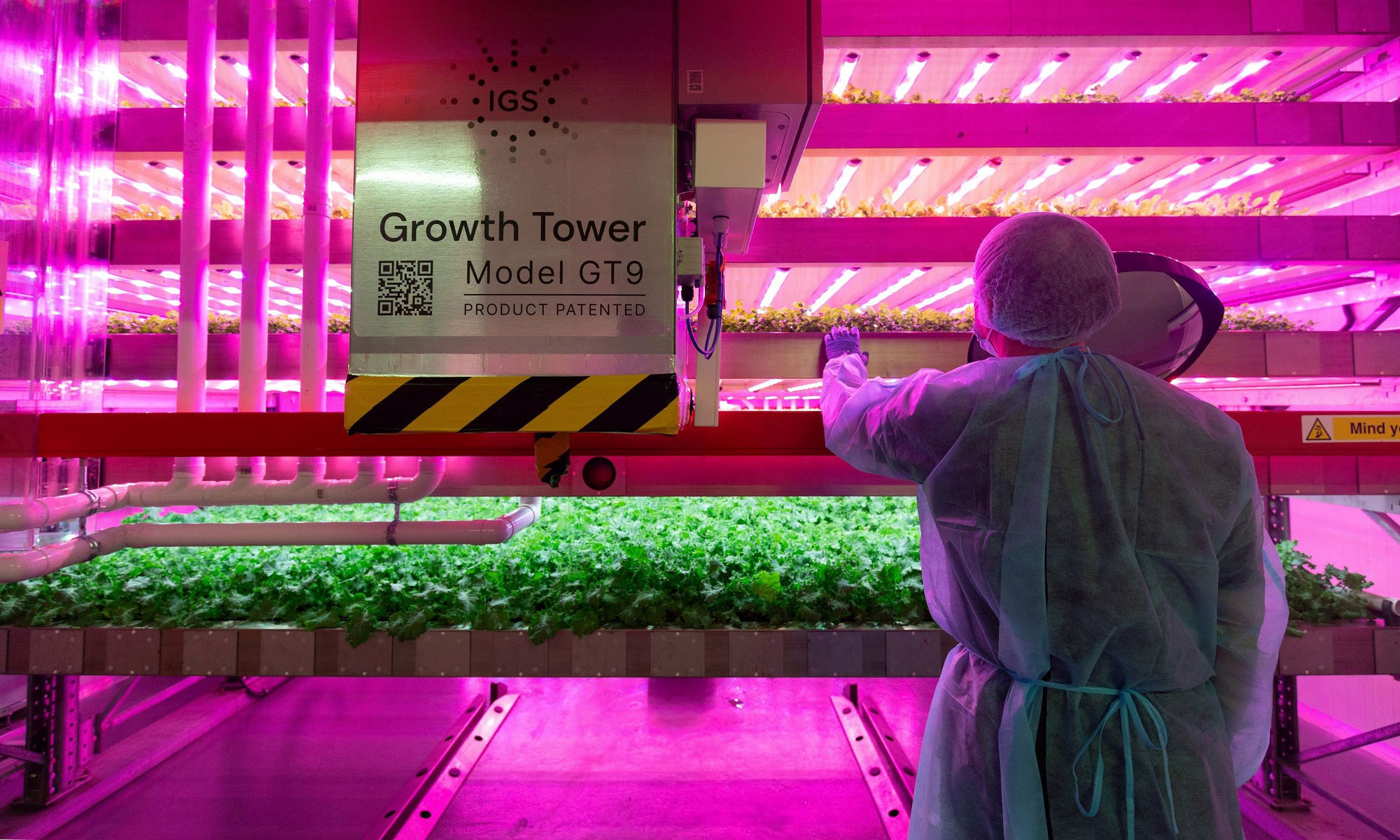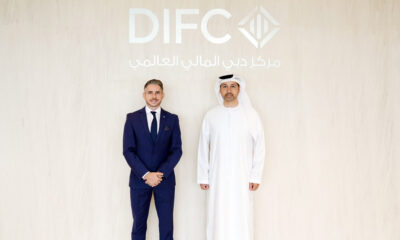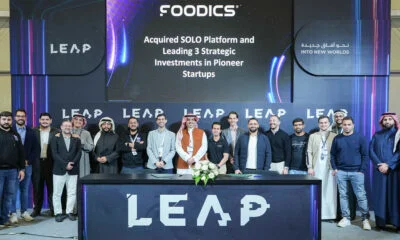News
Dubai’s Food Tech Valley & ReFarm Plan Hi-Tech Gigafarm
The “vertical farm” venture is expected to be operational by 2026 and will be capable of replacing 1% of UAE fresh produce imports.

Food Tech Valley, a Dubai-based technology center designed to address food security, has entered a partnership with the ReFarm group to build a gigafarm capable of growing over three million kilograms of produce annually.
The project, which starts in mid-2024, aims to help decarbonize UAE food production, replacing 1% of the country’s fresh produce imports. Both parties signed an agreement at this year’s COP28, which should see the 83,612-square-meter farm becoming fully operational by 2026.
As well as producing vast quantities of food, the high-tech farm will be capable of recycling over 50,000 tons of food waste each year while growing two billion plants.
“Rethinking our food production systems is a clear priority, and the decision of ReFarm to launch a facility in Dubai’s Food Tech Valley is a significant step forward for the development of a technologically advanced, low-carbon agricultural sector,” said Dr Thani Al Zeyoudi, UAE Minister of State for Foreign Trade.
The gigafarm will be split into four zones: Agritech and engineering, food innovation, research and development, and smart food logistics. In addition, the site will become a closed-loop circular waste-to-value system, maximizing resources and preventing waste from entering landfills by creating organic compost.
Also Read: Abu Dhabi’s Hub71 To Help Climate Technology Startups
“This is one of many transformative projects which is set to be part of Food Tech Valley, which will have a significant impact on the UAE’s food security, maximizing the use of precious resources and decarbonizing the food supply chain,” explained Hesham Al Qassim, chief executive of Wasl Asset Management Group, which is developing the project alongside the Ministry of Food and Water Security.
Technologies used at the gigafarm are expected to recover 90% of the ammonia sulfate from wastewater, and no mains or groundwater connection will be required for the vertical farm to produce fresh produce. Developers claim the site will be 98% more efficient than traditional field-based farming.
News
Rabbit Expands Hyperlocal Delivery Service In Saudi Arabia
The e-commerce startup is aiming to tap into the Kingdom’s underdeveloped e-grocery sector with a tech-first, locally rooted strategy.

Rabbit, an Egyptian-born hyperlocal e-commerce startup, is expanding into the Saudi Arabian market, setting its sights on delivering 20 million items across major cities by 2026.
The company, founded in 2021, is already operational in the Kingdom, with its regional headquarters now open in Riyadh and an established network of strategically located fulfillment centers — commonly known as “dark stores” — across the capital.
The timing is strategic: Saudi Arabia’s online grocery transactions currently sit at 1.3%, notably behind the UAE (5.3%) and the United States (4.8%). With the Kingdom’s food and grocery market estimated at $60 billion, even a modest increase in online adoption could create a multi-billion-dollar opportunity.
Rabbit also sees a clear alignment between its business goals and Saudi Arabia’s Vision 2030, which aims to boost retail sector innovation, support small and medium-sized enterprises, attract foreign investment, and develop a robust digital economy.
The company’s e-commerce model is based on speed and efficiency. Delivery of anything from groceries and snacks to cosmetics and household staples is promised in 20 minutes or less, facilitated by a tightly optimized logistics system — a crucial component in a sector where profit margins and delivery expectations are razor-thin.
Despite the challenges, Rabbit has already found its stride in Egypt. In just over three years, the app has been used by 1.4 million customers to deliver more than 40 million items. Revenue has surged, growing more than eightfold in the past two years alone.
Also Read: Top E-Commerce Websites In The Middle East In 2025
CEO and Co-Founder Ahmad Yousry commented: “We are delighted to announce Rabbit’s expansion into the Kingdom. We pride ourselves on being a hyperlocal company, bringing our bleeding-edge tech and experience to transform the grocery shopping experience for Saudi households, and delivering the best products – especially local favorites, in just 20 minutes”.
The company’s growth strategy avoids the pitfalls of over-reliance on aggressive discounting. Instead, Rabbit leans on operational efficiency, customer retention, and smart scaling. The approach is paying off, having already attracted major investment from the likes of Lorax Capital Partners, Global Ventures, Raed Ventures, and Beltone Venture Capital, alongside earlier investors such as Global Founders Capital, Goodwater Capital, and Hub71.


























